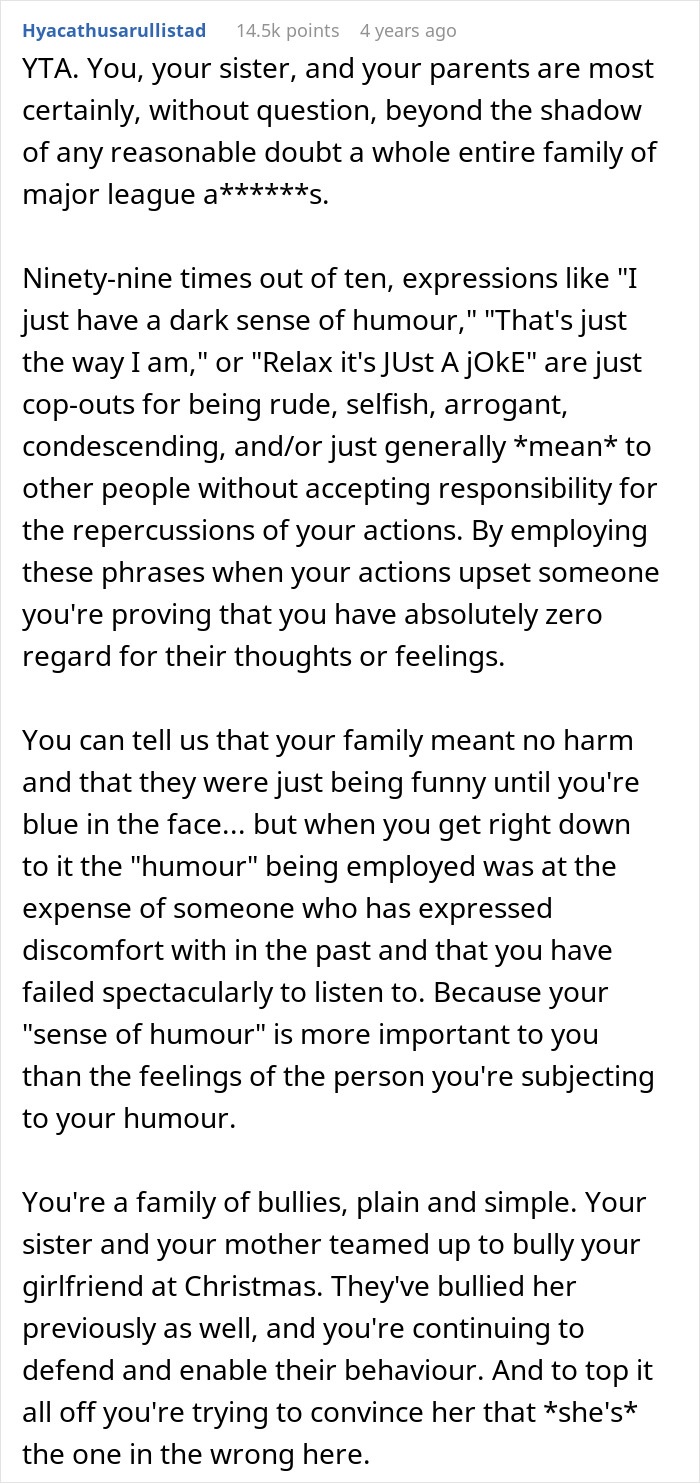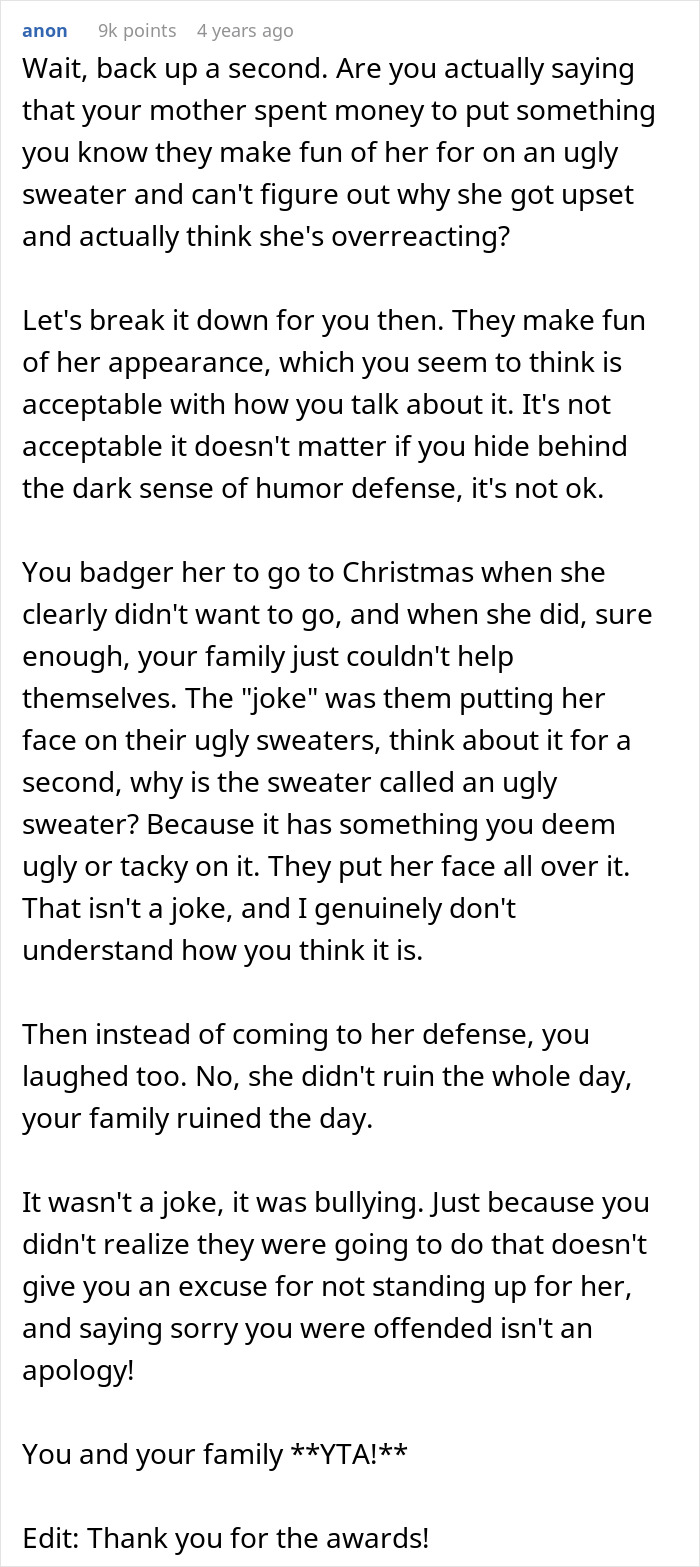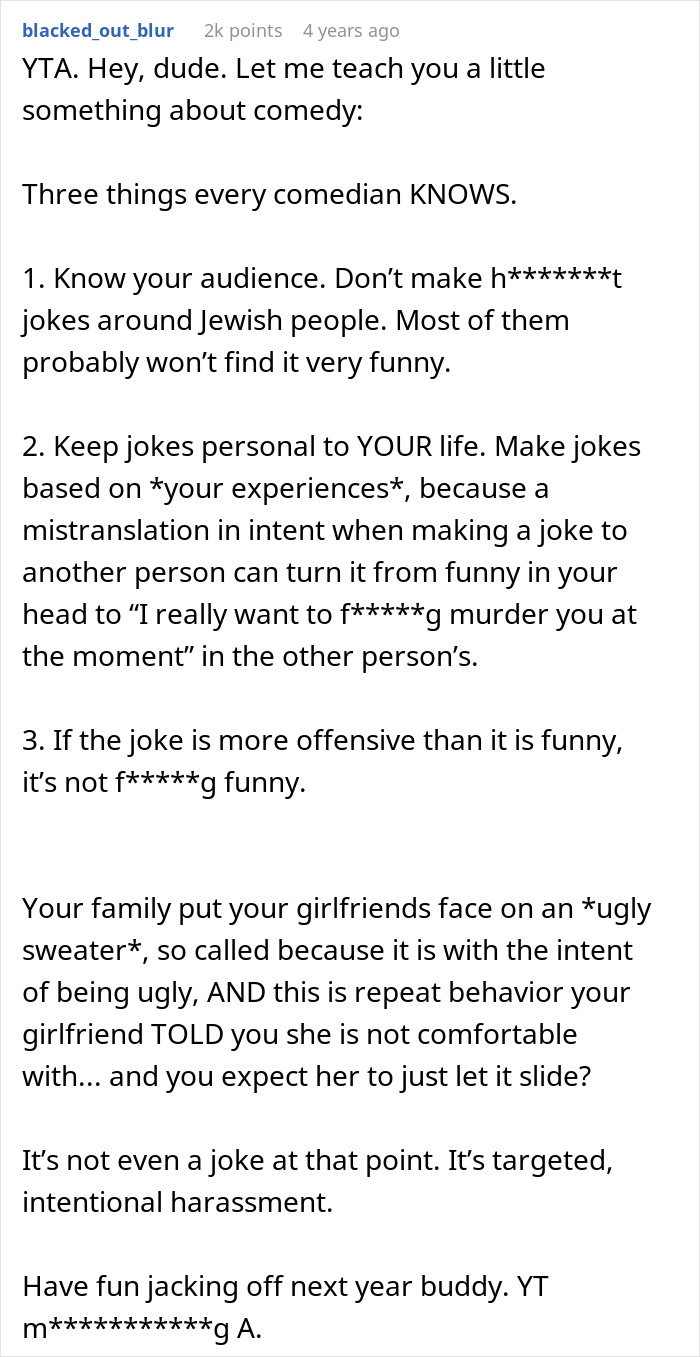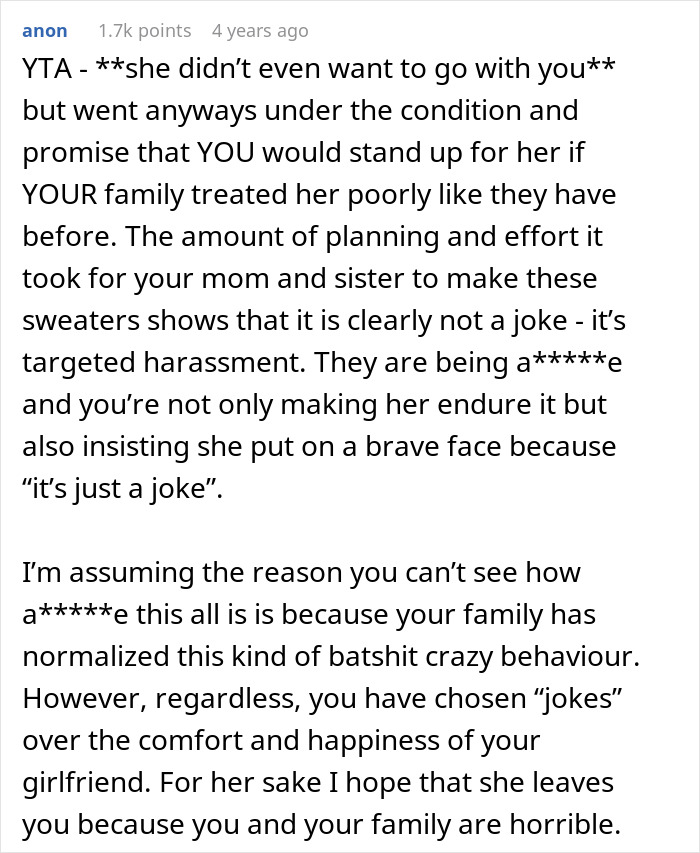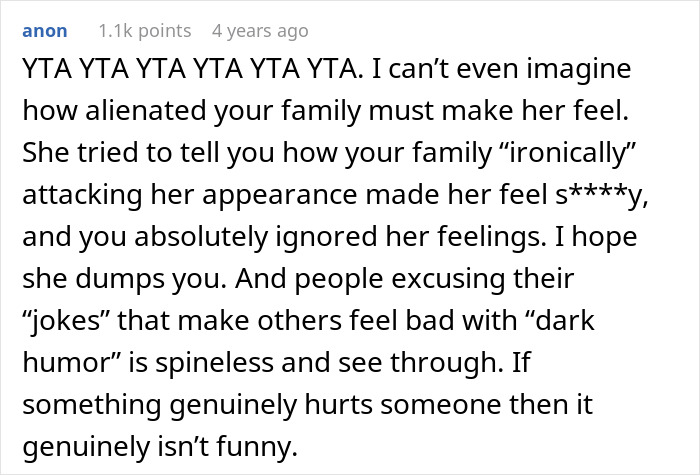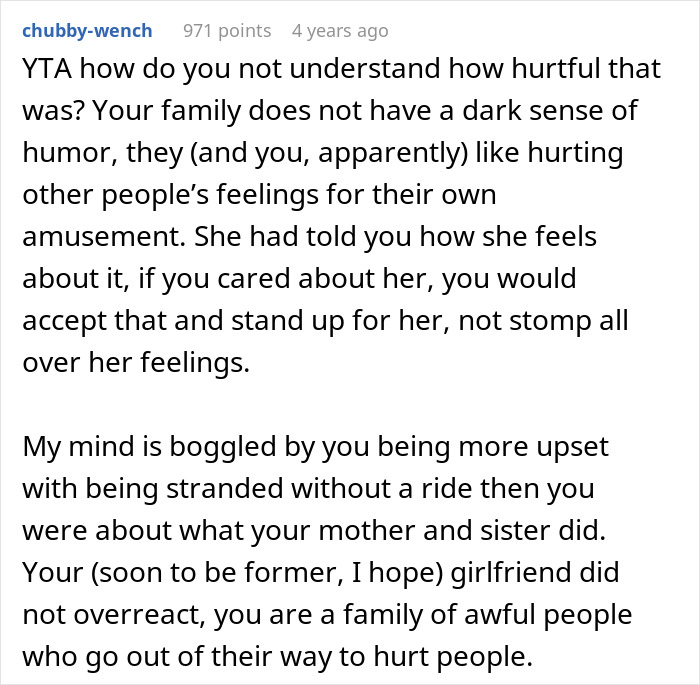They say laughter is the best medicine, unless the joke’s on you, and the “medicine” feels more like a punch to the gut. Dark humor walks a tricky tightrope between funny and painfully cruel, and sometimes what’s meant to be ironic just ends up being, well, ironic in the worst way.
The story shared by today’s Original Poster (OP) is a prime example of how humor can backfire spectacularly when it’s used as a weapon instead of a bridge. What started as a family’s “just joking” moment quickly turned into a night of hurt feelings and the OP’s girlfriend deciding she’d rather spend Christmas in her car than endure one more “joke”.
More info: Reddit
Sometimes, what one person calls “dark humor” can cut far deeper than anyone expects, especially when it targets someone’s appearance or vulnerabilities

Image credits: Camandona / Freepik (not the actual photo)
The author’s girlfriend, who has a large facial scar, was already hurt by his family’s dark humor targeting her appearance

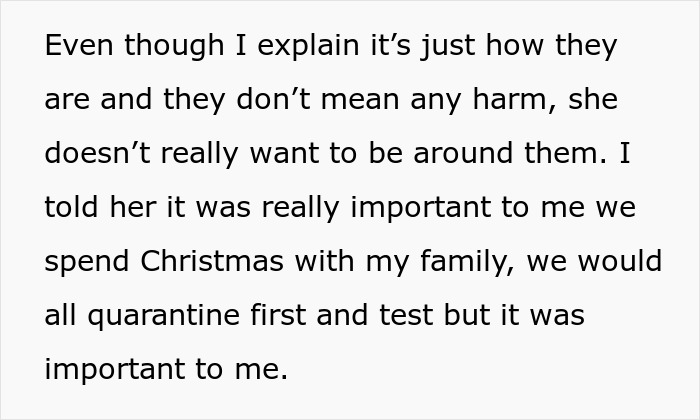
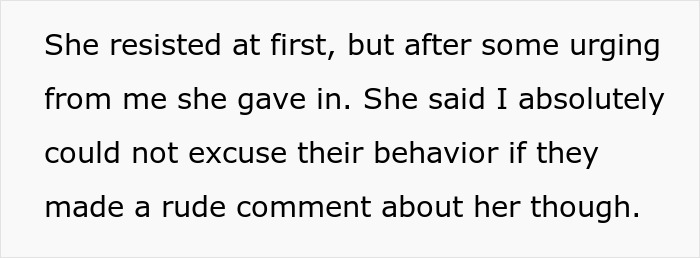
Image credits: Low-Alternative3147

Image credits: Nicole Michalou / Pexels (not the actual photo)
Despite her discomfort, she agreed to spend Christmas with his family after he insisted, with the condition that he would defend her
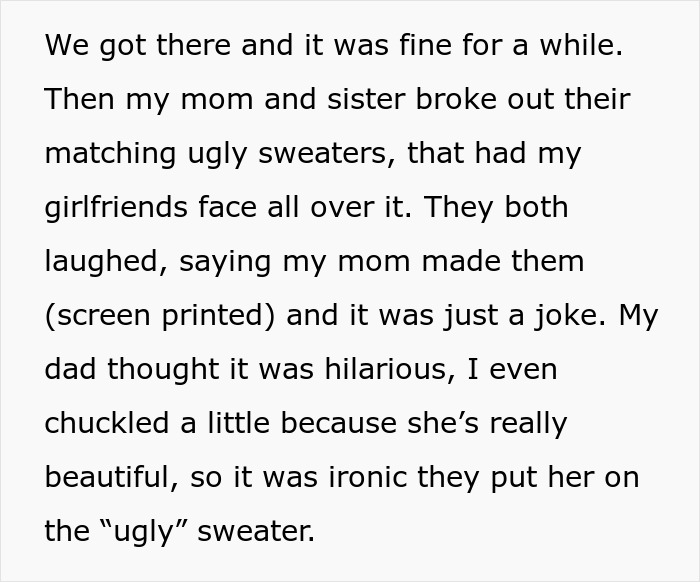

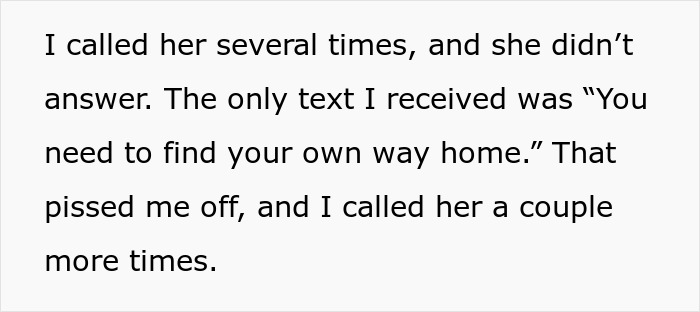
Image credits: Low-Alternative3147

Image generated by Bored Panda using ChatGPT
During the gathering, his mom and sister revealed ugly sweaters printed with the girlfriend’s face, which the author and his father found hilarious, and this led her to leave abruptly
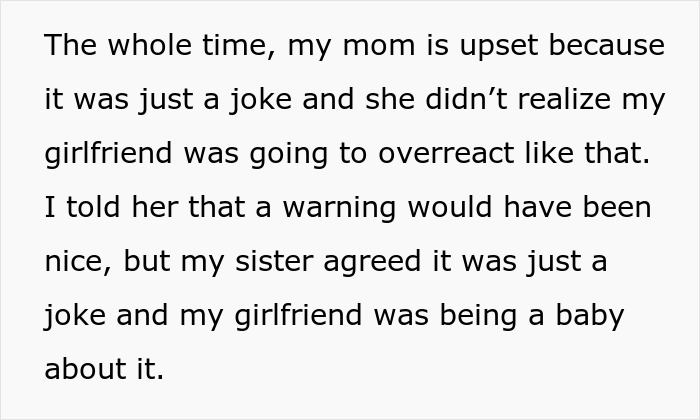
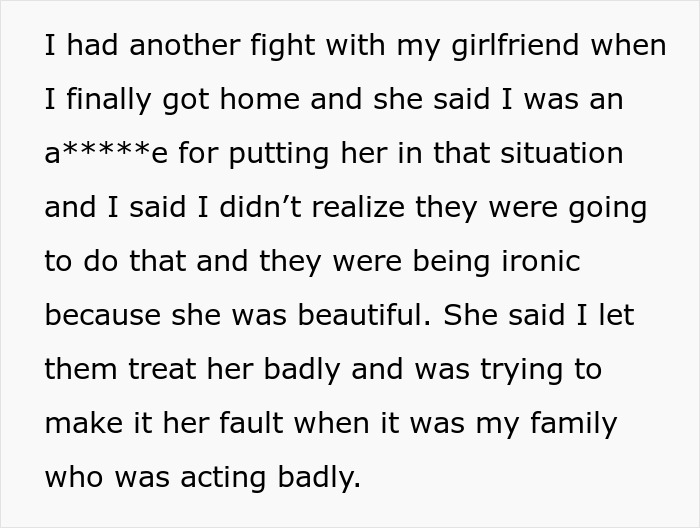

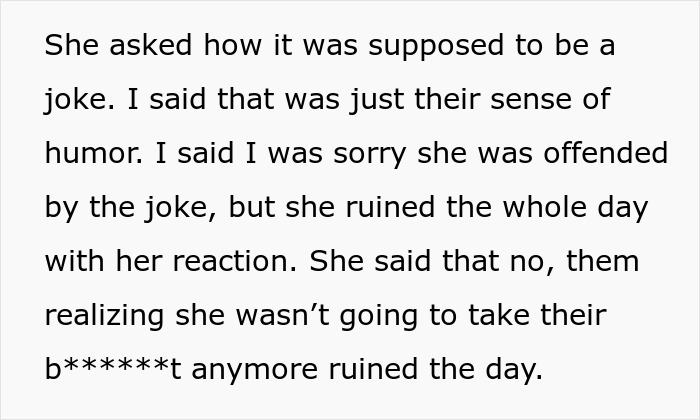

Image credits: Low-Alternative3147
When he returned home, they argued, with his girlfriend accusing him of enabling his family’s hurtful behavior and defending their “jokes”
Here’s what went down. The OP took his girlfriend to spend Christmas with his family. Now, his girlfriend had a visible facial scar, and while he made sure to note that it didn’t diminish her beauty, his family had a dark sense of humor that often targeted it. Despite her discomfort, he pushed for them to spend the holidays together, reassuring her it would all be fine.
Eventually, she reluctantly agreed on the condition that he wouldn’t make excuses for his family if their jokes crossed a line. When they arrived at his family’s home, everything was going well until the OP’s mom and sister unveiled matching ugly Christmas sweaters featuring his girlfriend’s face all over them. As usual, the OP and his father thought it was hilarious.
The girlfriend said nothing, then instead got up to leave and drove off. She then informed the OP via text that he should find his way home, which deeply upset him. Her leaving also upset his mother and sister, who insisted that the sweater was a joke and that she was being a “baby” about it.
When the OP returned home, he told his girlfriend she overreacted, and that the sweaters were just a joke. He also told her that she ruined Christmas, but his girlfriend didn’t mince words, telling him that the real problem was him letting it happen. When the OP vented to his cousin, the cousin called him a jerk for not protecting her.
To better understand the emotional weight behind the girlfriend’s reaction, Bored Panda reached out to clinical psychologist Christabell Madondo, who shed light on the deeper psychological impact of so-called “jokes” aimed at someone’s appearance, especially when scars are involved.
“Comments like these might seem harmless or funny to others, but to the person on the receiving end, it’s a whole lot more,” she stated, going further explain that while a family may claim it’s “just a joke”, the brain often interprets those remarks as criticism, not comedy, especially when those physical traits are tied to past trauma.

Image credits: jet-po / Freepik (not the actual photo)
“It feeds the inner critic,” Madondo added, “and over time, it can erode self-esteem and even lead to anxiety, withdrawal, or depression.” In short, real humor connects people; it shouldn’t come at the cost of someone’s dignity.
But the issue doesn’t stop with the comments themselves. When asked how a partner should respond in situations where their family crosses boundaries, she emphasized that advocacy is key. “Standing up for your partner isn’t just supportive; it builds trust and emotional safety,” she said.
She added that in moments like these, saying as little as “this isn’t okay” does more than just stop bad behavior. “It sends a message. Something like ‘I see you, I’ve got you.'” However, failing to speak up can lead to resentment and even long-term damage to the relationship. “Healthy couples act as a team, and sometimes, that means drawing firm but kind lines with family.”
So what happens when humor is weaponized in the form of “just kidding” jabs? According to Madondo, setting boundaries in those moments is not only appropriate but essential. “First, name the behavior,” she advised. Acknowledge that while they may not mean any harm, those comments aren’t funny to you and that you’d like them to stop.”
Madondo also stressed that consistency matters. Laughing along just to avoid tension may seem easier in the moment, but it often leads to deeper feelings of invalidation. “Boundaries are not placed to control others; they are to protect you and your partner.”
Netizens called the OP out for enabling his family’s hurtful behavior toward his girlfriend. They emphasized that what his family did was not just dark humor but outright bullying. They also criticize his lack of empathy and failure to stand up for his girlfriend despite her expressed discomfort.
What do you think about this situation? Was the OP’s decision to bring his girlfriend despite knowing his family’s behavior fair to her? We would love to know your thoughts!
Netizens expressed disappointment at the author, calling him out for being a jerk for not standing up for his girlfriend and for enabling his family’s harmful behavior


